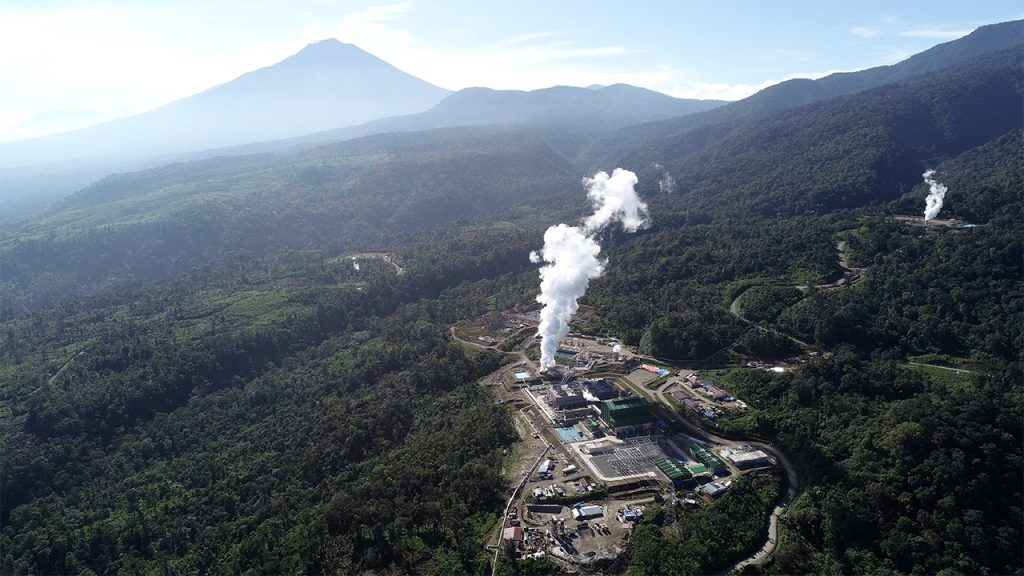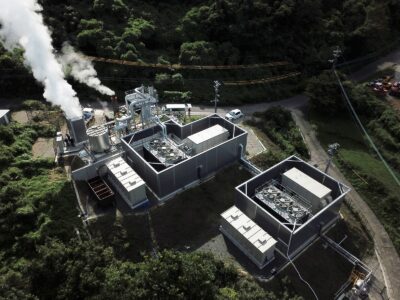Plans on merging state-owned geothermal companies in Indonesia back on the table
The resurfaced plans of the Indonesian government to bundle activities of three state-owned geothermal companies into one holding company is seen positive by the industry and create a more competitive environment.
The Indonesian government is said to put its plan on merging state-owned enterprises (BUMN) engaged in geothermal energy back on the table. This plan is known to have existed since 2016, but until now the plan has not been realized, so CNBC Indonesia late last month..
These plans were re-expressed by the Director of Separated State Assets at the Ministry of Finance (Kemenkeu) Meirijal Nur.
“In the last week there was a discussion on the plan to merge geothermal companies, and the dynamics have continued in recent times,” said Meirijal Nur in late January.
The plan to form one state-owned holding company in the geothermal power generation business has been sticking out since 2016. The hope is that with this holding, the geothermal energy mix target of 7,200 MW by 2025 can be achieved. Which though with the delay in plans on drilling cut down to two working areas is more than unlikely.
The discourse on the formation of a geothermal BUMN holding in 2016 is to unite several companies that concentrate in the field of geothermal power generation (PLTP).
Plan would be to establish a state-owned geothermal holding company, that would bundle the work by the state-owned entities of PT Pertamina Geothermal Energy (PGE), PT Geodipa Energy, and PT PLN Gas & Geothermal.
Based on data from the Ministry of Energy and Mineral Resources, the installed capacity of PLTP until 2020 has only reached 2,130.7 MW, while based on the National Energy General Plan (RUEN), the PLTP capacity is planned to reach 7,241.5 MW in 2025. This means that an additional capacity of around 5,000 MW is needed in the next five years or around 1,000 MW per year.
In a follow up on these plans, the Indonesian Geothermal Association (INAGA) assessed that the discussions on the formation of a holding of State Owned Enterprises (BUMN) in the geothermal sector could be realized in the future.
Chairman of the Indonesian Geothermal Association Priyandaru Effendi said that actually the discourse for establishing a geothermal SOE holding company is just a matter of time. Even without holding, each geothermal SOE already has its own vision and business targets.
“It seems there are not many difficulties in forming a holding. This is just a matter of priority, “he said, last week.
Apart from that, the existence of geothermal BUMN holding can certainly bring benets to geothermal development in Indonesia. One of them is to maximize the role of the BUMN company as a public service obligation (PSO) in the geothermal sector.
Priyandaru explained, currently there are many potential geothermal areas to be explored and used as power plants. Unfortunately, the demand in these regions is still relatively low, making it less attractive to geothermal investors, especially from private parties who, in fact, really consider commercial factors.
“SOE assignment can be optimized for geothermal development in areas with lots of potential but demand it less and less private demand, such as in Eastern Indonesia,” he said. SOEs can also play a role during the auction process for Geothermal Working Areas (WKP).
Priyandaru said, although the WKP auction will only be held in 2023, the auction should have been more crowded. Moreover, the government bears the cost of geothermal exploration, thereby reducing the risk for investors. So, SOEs can still participate in the WKP auction and compete with private investors. It is expected that each party can offer more competitive price quotes. “So, to maximize the commercial aspect, BUMN can also participate in geothermal area tenders to make it more competitive,” he concluded.
Source: CNBC Indonesia, Kontan


















